Research at IOSD: Approach and Output
Exploring Sustainable Development: Insights from IOSD Research on Global Environmental Challenges
The International Organization for Sustainable Development (IOSD) stands at the forefront of advancing knowledge and action toward a more sustainable world. Founded in 2004 as a non-profit entity and evolving into an intergovernmental institute under the United Nations Treaty Series in 2008, IOSD serves as a vital hub for research, education, and collaboration on sustainable development issues. With a mission to promote understanding and implementation of sustainable practices across sectors, IOSD produces authoritative papers, articles, and resources that address pressing global concerns. Among its key areas of focus is the vulnerability of small island states to environmental crises, where the organization highlights the disproportionate impacts of climate change and related phenomena on these regions.
Small island developing states (SIDS), such as Tuvalu, Niue, and Comoros, are often on the front lines of global environmental challenges. Despite contributing minimally to worldwide greenhouse gas emissions, these nations face existential threats from rising sea levels, extreme weather events, and ecosystem degradation. IOSD’s research underscores the urgency of these issues, emphasizing how factors like ocean acidification—a direct consequence of increased atmospheric CO2 absorption by seawater—exacerbate crises in marine environments. This process lowers ocean pH levels, disrupting calcification in organisms like corals and shellfish, which in turn threatens biodiversity, fisheries, and local economies dependent on healthy oceans.
In recent publications, IOSD has delved deeply into these topics, offering detailed analyses of ocean acidification’s effects on fragile ecosystems. For instance, studies examine the plight of Tuvalu, where rising seas and changing ocean chemistry compound risks to coral reefs and coastal communities, potentially leading to habitat loss and socioeconomic instability. Similarly, research on Niue highlights the urgent need for action to protect its vibrant coral ecosystems, drawing on global data to illustrate local vulnerabilities. IOSD’s work also extends to remote islands like Bouvet, where acidification silently erodes marine food webs, impacting species from plankton to seabirds. Other explorations cover Comoros’ waters, where coral bleaching and reduced fishery yields pose growing threats, and even indirect ripple effects on landlocked regions like Bhutan’s Himalayan rivers through interconnected global systems.
These investigations not only document specific crises—such as biodiversity loss, disrupted fisheries, and heightened natural disaster risks—but also advocate for adaptive strategies. By integrating scientific findings with policy recommendations, IOSD’s research calls for international cooperation, enhanced monitoring, and sustainable practices to mitigate these impacts. Issues like ocean acidification are emblematic of broader global environmental challenges, including climate change, habitat destruction, and resource scarcity, which disproportionately burden small island states due to their geographic isolation and limited adaptive capacities.
IOSD’s commitment to this field reflects a broader interest in empowering vulnerable regions through knowledge-sharing and innovation. As an authoritative source for sustainable development insights, the organization continues to expand its portfolio, including partnerships for educational programs like graduate degrees in Climate Change and Sustainability.
We invite researchers, academics, and practitioners passionate about these topics to contribute to this vital discourse. If you have original research articles on small island states, ocean acidification, climate resilience, or related global environmental issues, please contact IOSD at info@iosd.org to discuss submission opportunities. Your work could help amplify voices from the frontlines and drive meaningful change toward a sustainable future.
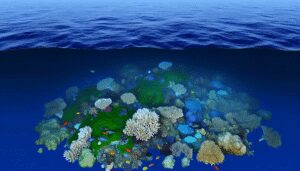
Ocean Acidification in Tokelau: Threats to Coral Reefs and Marine Biodiversity
This article explores the severe impacts of ocean acidification on Tokelau’s coral reefs and marine biodiversity, crucial for the region’s livelihoods and culture. It examines chemical mechanisms, ecological consequences, and the role of international cooperation, offering recommendations for local adaptation and global action to mitigate this crisis.
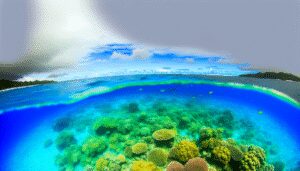
Ocean Acidification Threatens Niue’s Coral Reefs: A Growing Environmental Crisis
This article explores the severe impact of ocean acidification on Niue’s coral reefs, driven by rising CO₂ levels. It highlights the chemical and biological threats to marine life, socio-economic risks to fisheries and tourism, and advocates for urgent local and global action through regional cooperation and international treaties.
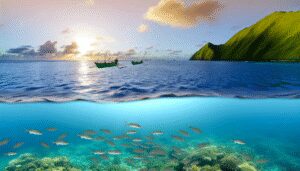
Sustaining the Ocean’s Bounty: Niue’s Innovative Approach to Sustainable Fisheries
This article examines Niue’s innovative sustainable fisheries management as a model for small island developing states. Facing challenges like overfishing and climate change, Niue employs community-led conservation, marine protected areas, and regional cooperation through treaties like the Niue Treaty, offering valuable lessons for ocean governance.
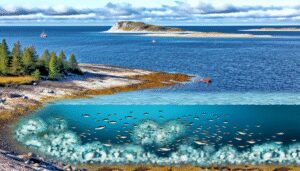
Ocean Acidification Threatens Marine Life: Challenges for the Åland Islands Ecosystem
This article explores ocean acidification’s severe impact on the Åland Islands in the Baltic Sea, where unique conditions worsen effects on marine life, biodiversity, fisheries, and local livelihoods. It examines vulnerabilities, socio-economic challenges, and advocates for local and international strategies to mitigate this global threat.
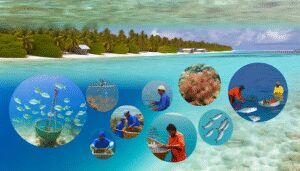
Sustainable Fisheries in Nauru: Balancing Economic Growth and Ocean Conservation
This article explores sustainable fisheries in Nauru, a Pacific Island nation dependent on marine resources. It addresses challenges like overfishing and economic reliance on fishing revenues, advocating for integrated policies, regional cooperation via the Nauru Agreement, community-based management, and technological innovations to balance economic growth with ocean conservation.
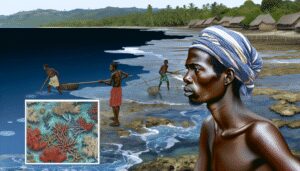
Ocean Acidification in São Tomé and Príncipe: Impacts on Coastal Communities and Marine Biodiversity
This article examines ocean acidification’s severe impacts on São Tomé and Príncipe, a small island state reliant on marine resources. It details threats to coral reefs, shellfish, and fish stocks, affecting biodiversity and coastal livelihoods. Recommendations include local monitoring, community adaptation, and international collaboration to build resilience.
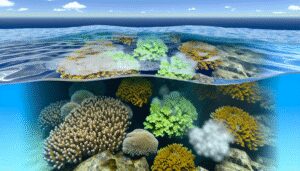
Ocean Acidification Threatens Nauru’s Coral Reefs: A Growing Environmental Crisis
This article explores the severe impact of ocean acidification on Nauru’s coral reefs, vital for ecological balance and local livelihoods. It examines global frameworks like the UNFCCC and Paris Agreement, highlights Nauru’s vulnerability, and urges localized adaptation, international cooperation, and policy interventions to combat this environmental crisis.
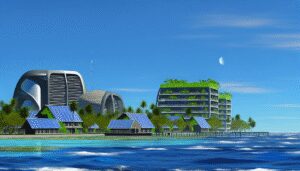
Building Resilience: Sustainable Architecture for Tuvalu’s Future
Tuvalu, a Pacific Island nation, faces severe climate change threats like rising sea levels and storms. This paper explores sustainable architecture as a solution, integrating adaptive designs, local knowledge, and international support. It proposes community-driven strategies and global collaboration to ensure Tuvalu’s resilience and cultural preservation.
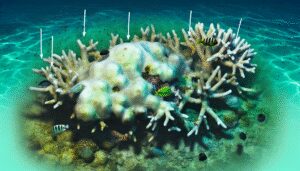
Ocean Acidification Threatens Coral Reefs: The Growing Crisis in Comoros Waters
This article explores the severe impact of ocean acidification on coral reefs in the Comoros Islands, where declining ocean pH levels threaten biodiversity, livelihoods, and coastal protection. It examines global and local stressors, reviews international frameworks like UNFCCC and CBD, and recommends localized monitoring, stronger policies, and collaborative action.
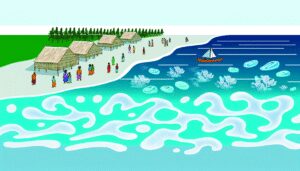
Ocean Acidification Threatens Tuvalu: A Small Nation’s Battle Against Rising Seas and Changing Chemistry
This article explores the severe impact of ocean acidification on Tuvalu, a small Pacific island nation already threatened by rising sea levels. It highlights how changing ocean chemistry damages coral reefs and fisheries, exacerbating food security and livelihood challenges, and urges global action through enhanced cooperation and localized adaptation strategies.
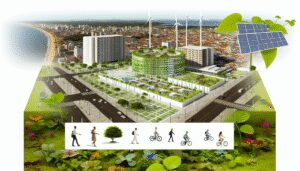
Building Green Futures: Sustainable Urban Development in São Tomé and Príncipe
This article explores sustainable urban development in São Tomé and Príncipe, a small island state facing rapid urbanization and climate vulnerability. It advocates for green building practices and international collaboration to address housing, environmental, and economic challenges, aligning local strategies with global sustainability goals like the SDGs and Paris Agreement.
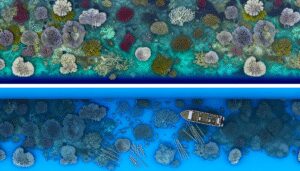
Ocean Acidification Threat in the Åland Islands: Impacts on Marine Ecosystems and Local Fisheries
This article explores ocean acidification’s impact on the Åland Islands in the Baltic Sea, highlighting the region’s vulnerability due to its brackish waters and reliance on fisheries. It discusses ecological disruptions, socio-economic consequences, and advocates for local adaptation strategies alongside international cooperation to mitigate this global threat.
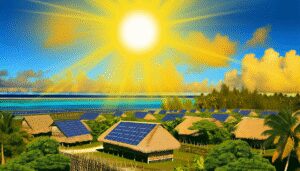
Harnessing the Sun: Tuvalu’s Journey Toward Sustainable Solar Energy Solutions
This article examines Tuvalu’s transition to solar energy as a Climate change adaptation strategy and a path to energy independence. Facing rising sea levels and fossil fuel dependency, Tuvalu leverages international partnerships and treaties like the Paris Agreement to implement solar projects, despite financial and technical challenges.
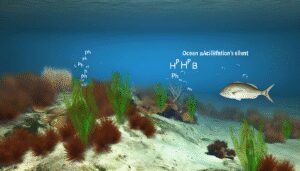
Ocean Acidification’s Silent Threat: Unraveling Impacts on Bouvet Island’s Fragile Marine Ecosystem
This article examines ocean acidification’s impact on Bouvet Island, a remote sub-Antarctic ecosystem. It highlights threats to key species like krill and corals, disruptions to food webs, and the need for enhanced monitoring and international cooperation to protect such vulnerable marine environments from climate change effects.
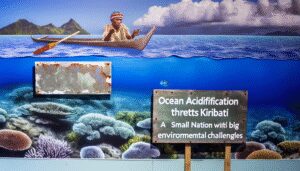
Ocean Acidification Threatens Kiribati: A Small Nation Facing Big Environmental Challenges
This article examines ocean acidification’s severe impact on Kiribati, a small island developing state, highlighting its threat to coral reefs, marine biodiversity, and fisheries crucial for the nation’s economy and food security. It discusses environmental and socio-economic challenges, international frameworks, and recommends urgent local and global action for mitigation.
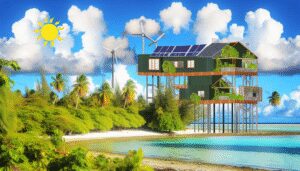
Building for Resilience: Sustainable Architecture Solutions in Kiribati
This article examines sustainable architectural solutions for Kiribati, a Pacific island nation vulnerable to climate change impacts like sea-level rise and extreme weather. It proposes a resilience framework integrating local knowledge with modern practices, advocating for climate-resilient materials, community-driven designs, and international cooperation for long-term habitability.
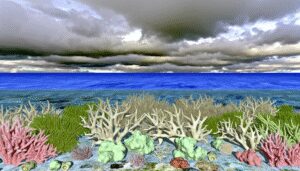
Ocean Acidification Threatens Niue’s Coral Reefs: A Call for Urgent Action
This article explores the severe impact of ocean acidification on Niue’s coral reefs, crucial to the island’s ecology, economy, and culture. It discusses declining ocean pH levels, the resulting coral degradation, and the need for urgent local and international action to mitigate CO₂ emissions and protect these vital ecosystems.
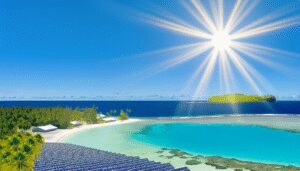
Harnessing the Sun: Niue’s Journey Towards Sustainable Solar Energy Solutions
This article examines Niue’s transition to sustainable solar energy, highlighting its role as a model for small island nations. Despite geographic and economic challenges, Niue’s commitment, supported by international partnerships and treaties like SIDS DOCK, showcases solar power’s potential for energy security and environmental resilience.
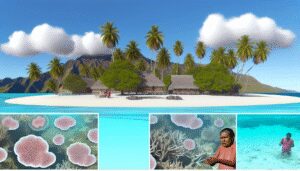
Ocean Acidification in Kiribati: Rising Threats to Coral Reefs and Island Livelihoods
This article explores the severe impact of ocean acidification on Kiribati’s coral reefs, crucial for coastal protection, fisheries, and cultural identity. It examines socioeconomic consequences, global governance roles, and proposes localized adaptation, enhanced monitoring, and international cooperation to safeguard Kiribati’s marine ecosystems and community well-being.
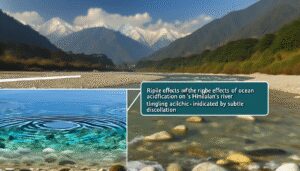
Ocean Acidification’s Ripple Effects: Bhutan’s Himalayan Rivers at Risk
This article explores the indirect impacts of ocean acidification on Bhutan’s Himalayan rivers, highlighting potential disruptions to hydrological balance, biodiversity, and water security through altered carbon cycles and climate patterns. It emphasizes the need for integrated policies and regional cooperation to mitigate these global environmental challenges.
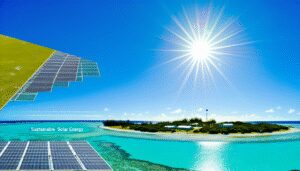
Harnessing the Sun: Nauru’s Transition to Sustainable Solar Energy
This article examines Nauru’s shift to sustainable solar energy, addressing its historical reliance on fossil fuels and the associated economic and environmental challenges. As a small island nation, Nauru’s transition, supported by initiatives like the ADB’s Solar Power Development Project, offers insights for other SIDS.
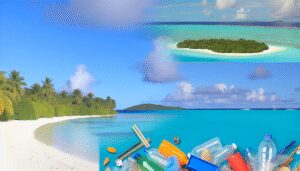
Plastic Pollution Crisis in Tuvalu: Battling Waste in a Pacific Paradise
Plastic pollution threatens Tuvalu, a Pacific island nation, despite its minimal contribution to global waste. Marine debris overwhelms local systems, damaging ecosystems and livelihoods. This article explores the crisis’s impacts, advocates for global cooperation, and recommends stronger policies, regional collaboration, and support through international treaties like the Global Plastics Treaty.
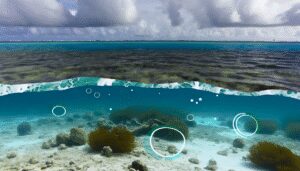
Ocean Acidification Threatens Kiribati: A Small Nation’s Battle Against Changing Seas
This article explores ocean acidification’s severe impact on Kiribati, a Pacific atoll nation reliant on marine ecosystems for food, economy, and culture. It highlights the vulnerability of coral reefs and fisheries, urging adaptive strategies, international cooperation, and tailored policies to mitigate this climate change threat.

Harnessing the Winds of Change: Sustainable Energy Solutions for Bouvet Island
This article explores sustainable energy solutions for Bouvet Island, the world’s most remote island, focusing on wind energy for potential scientific outposts. It analyzes environmental challenges, reviews renewable energy literature, and proposes small-scale wind turbines and international collaboration as feasible strategies for extreme conditions.
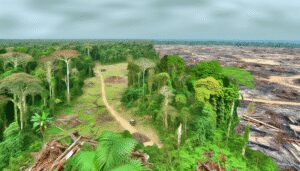
Deforestation Crisis in Gabon: Uncovering the Rapid Loss of Central Africa’s Rainforest Treasure
Gabon, dubbed Africa’s “Last Eden,” holds vital Congo Basin rainforests, crucial for carbon storage and biodiversity. Despite progressive conservation policies, deforestation surges due to logging, agriculture, and infrastructure. This article examines these drivers, the role of international treaties, and proposes solutions for sustainable forest management.

Ocean Acidification Threatens Kiribati: A Small Nation Battles a Global Crisis
This article explores the severe impact of ocean acidification on Kiribati, a Pacific atoll nation vulnerable to climate change. It highlights threats to coral reefs, marine biodiversity, food security, and livelihoods, while emphasizing the need for localized adaptation, global mitigation, and stronger international cooperation to address this crisis.
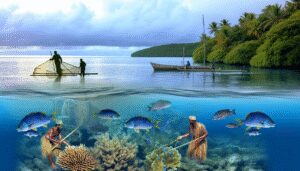
Sustainable Fisheries in Niue: Balancing Tradition and Conservation for Future Generations
This article examines sustainable fisheries in Niue, a Pacific Island nation, highlighting the balance between traditional fishing practices and modern conservation needs. It discusses challenges like climate change and overfishing, emphasizing the role of community engagement, local governance, and international cooperation through treaties like the Niue Treaty.
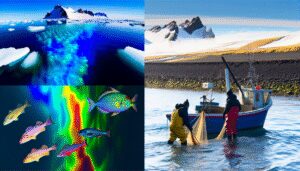
Ocean Acidification in Iceland: Impacts on Marine Ecosystems and Fisheries
This article explores ocean acidification’s impact on Iceland’s marine ecosystems and fisheries, highlighting the vulnerability of calcifying organisms and disruptions to fish physiology and food webs. It emphasizes Iceland’s unique North Atlantic position, urging enhanced monitoring, policy integration with global treaties, and adaptive fisheries management.
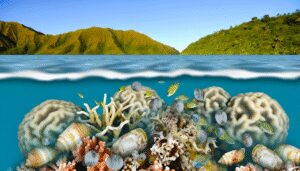
Ocean Acidification Threatens Marine Life in Niue: A Growing Environmental Crisis
This article explores ocean acidification’s severe impact on Niue, a Pacific Island nation reliant on marine resources. It details threats to coral reefs, shellfish, and fish, exacerbating food security and economic challenges. Recommendations include local monitoring, community adaptation, and international cooperation to protect Niue’s marine ecosystems.
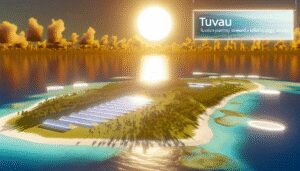
Harnessing the Sun: Tuvalu’s Journey Toward Sustainable Solar Energy Solutions
Tuvalu, a vulnerable Pacific Island nation, combats climate change threats like rising sea levels and fossil fuel dependency through sustainable solar energy solutions. This article examines Tuvalu’s renewable energy transition, highlighting national policies, international partnerships, and challenges such as geographic isolation and limited resources.

Harnessing the Sun: Costa Rica’s Journey to 100% Renewable Energy
Costa Rica is a global leader in renewable energy, achieving near-100% renewable electricity through hydroelectric, geothermal, wind, and solar power. This article examines its journey, focusing on solar energy’s potential to diversify the energy mix, while addressing challenges and the role of international support in sustaining its sustainability goals.
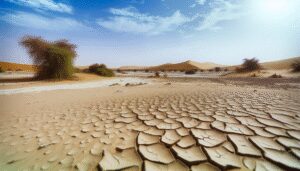
Desertification in Chad: Battling the Encroaching Sands of the Sahel
Desertification in Chad, a critical issue in the Sahel region, is driven by climate change, overgrazing, deforestation, and unsustainable agriculture. This article explores its causes, impacts on food security and livelihoods, and responses through international treaties, regional initiatives like the Great Green Wall, and sustainable land management recommendations.
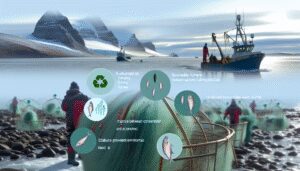
Sustainable Fisheries in Bouvet Island: Balancing Conservation and Economic Needs in the Remote South Atlantic
This article explores sustainable fisheries potential around Bouvet Island, a remote sub-Antarctic territory under Norwegian sovereignty. It analyzes balancing conservation of the pristine Southern Ocean ecosystem with hypothetical economic needs, emphasizing strict adherence to international agreements like CCAMLR and the importance of scientific monitoring for global ocean sustainability.
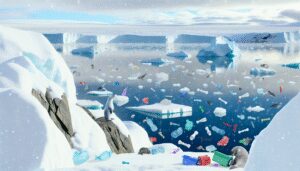
Marine Plastic Pollution in Greenland: Assessing the Impact on Arctic Ecosystems
Marine plastic pollution poses a severe threat to Greenland’s Arctic ecosystems, impacting biodiversity, marine species, and human communities. Originating from both local and transboundary sources, plastics disrupt fragile ecosystems through ingestion, entanglement, and microplastic contamination. Urgent collective action, enhanced monitoring, and international cooperation are essential to mitigate this escalating crisis.
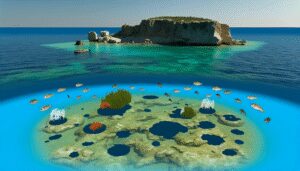
Ocean Acidification Threat in Cyprus: Impacts on Marine Ecosystems and Local Fisheries
Ocean acidification, caused by excess atmospheric CO2 absorption, threatens Cyprus’s marine ecosystems and fisheries. This article examines its chemical processes, impacts on biodiversity, and effects on local fishing communities. It emphasizes the need for localized strategies, international cooperation, and policies to mitigate damage and ensure sustainability.
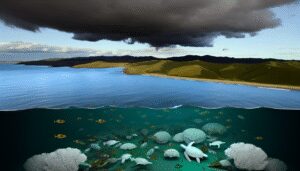
Ocean Acidification Threatens Uruguay’s Coastal Ecosystems: A Growing Environmental Crisis
Ocean acidification, caused by seawater absorbing anthropogenic CO2, threatens Uruguay’s coastal ecosystems like estuaries and mangroves. This article explores its impacts on biodiversity, fisheries, and tourism, highlighting species vulnerabilities and socioeconomic risks. It recommends enhanced monitoring, policy integration, and international collaboration to address this crisis.
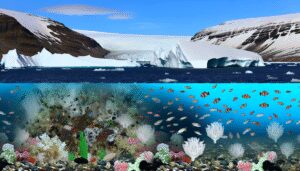
Ocean Acidification in Greenland: Unveiling the Impacts on Arctic Marine Ecosystems
Ocean acidification, driven by CO₂ absorption, severely threatens Arctic marine ecosystems, especially in Greenland, where cold waters and low buffering capacity intensify the issue. This article explores its impacts on species, food webs, and local communities, urging international cooperation and policy action to protect Arctic biodiversity.
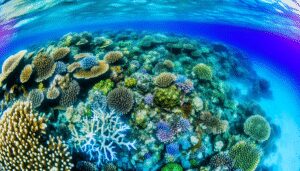
Ocean Acidification Threatens Niue’s Coral Reefs: A Call for Global Action
Ocean acidification, driven by CO₂ emissions, threatens Niue’s coral reefs, crucial for biodiversity, economy, and cultural heritage. This article explores acidification’s chemical and ecological impacts, socio-economic consequences for Niue, and the need for global action through intergovernmental cooperation and local conservation to protect vulnerable ecosystems.
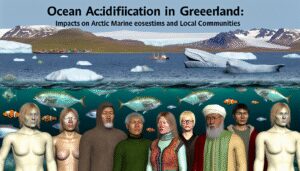
Ocean Acidification in Greenland: Impacts on Arctic Marine Ecosystems and Local Communities
Ocean acidification (OA) threatens Greenland’s Arctic marine ecosystems due to rising CO2 absorption in cold, carbon-absorbent waters. This paper explores OA’s severe impacts on marine biodiversity, especially calcifying organisms and fish stocks, and the socioeconomic consequences for local fishing-dependent communities, while proposing mitigation strategies.

Ocean Acidification Impacts: Exploring Bhutan’s Role in Global Marine Conservation
Ocean acidification, driven by rising CO2 levels, threatens marine ecosystems and human livelihoods globally. This article explores its impacts and highlights Bhutan, a landlocked nation, as a unique contributor to marine conservation through climate mitigation, sustainable practices, and international collaboration, offering recommendations for enhanced policy advocacy.
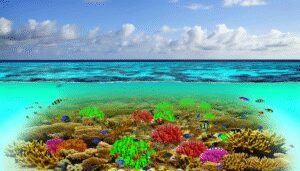
Ocean Acidification Threatens Costa Rica’s Coral Reefs: A Growing Environmental Crisis
This article explores the severe threat of ocean acidification to Costa Rica’s coral reefs, driven by increased CO2 absorption. It examines ecological and socio-economic impacts, the role of global treaties, and the urgent need for localized conservation and international cooperation to protect these vital ecosystems.
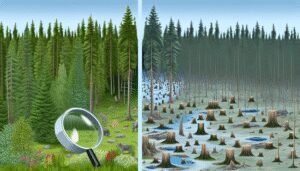
Deforestation in Greenland: Uncovering the Hidden Loss of Arctic Forests
This article examines the understudied issue of deforestation in Greenland, highlighting vegetation loss due to climate change, permafrost thaw, human activities like mining, and natural disturbances. It emphasizes the need for enhanced monitoring, policy development, and international cooperation through frameworks like the Arctic Council and Paris Agreement to mitigate these impacts.
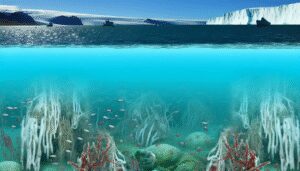
Ocean Acidification Threatens Greenland’s Marine Ecosystems: A Growing Environmental Crisis
Ocean acidification, driven by CO2 absorption, threatens Greenland’s marine ecosystems and biodiversity, impacting species like Arctic cod and shellfish. This crisis affects food security and indigenous livelihoods. The article examines chemical processes, ecosystem vulnerabilities, socioeconomic consequences, and urges global cooperation under frameworks like UNFCCC for mitigation.

IOSD Partners with EUCLID on EULER University initiative
Loading the Elevenlabs Text to Speech AudioNative Player…The IOSD Secretary-General is pleased to announce ongoing cooperation with EUCLID as well as other private partners to
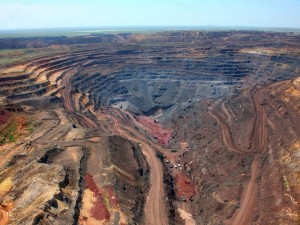
Sustainability and Rare Earth Elements
Loading the Elevenlabs Text to Speech AudioNative Player…SUSTAINABILITY, RENEWABLE ENERGY AND RARE EARTH ELEMENTS Eric Schelter The rare earth elements are used in renewable energy

Chris Martenson’s Crash Course
Loading the Elevenlabs Text to Speech AudioNative Player…You will learn about: # CHAPTER DURATION TRANSLATIONS — Introduction (on this page, above) 1:47 Español, Deutsch, Français 1 Three Beliefs

Review of Herman Daly’s “Beyond Growth”
Loading the Elevenlabs Text to Speech AudioNative Player… Beyond Growth: The Economics of Sustainable Development (1997, Boston, MA: Beacon Press). Written by: Herman Daly Reviewed by:

Sustainability in Forestry: Lessons from History
Loading the Elevenlabs Text to Speech AudioNative Player…Click on the icon below to download the paper in PDF format: Relevant video(s) regarding Sustainable Forestry:

IOSD and EUCLID University
Loading the Elevenlabs Text to Speech AudioNative Player…EUCLID (Euclid University) is both IOSD’s parent institution (since 2008) but also, historically, its brainchild. Today and after
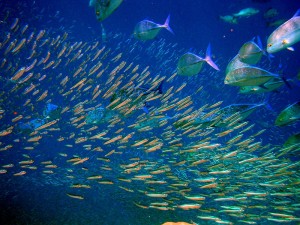
Principles and Criteria for Sustainable Fishing
Loading the Elevenlabs Text to Speech AudioNative Player…Click on the icon below to download the full text of the paper. Related videos:

The EU and World Sustainable Development
Loading the Elevenlabs Text to Speech AudioNative Player…Click below to access the full paper in PDF format: Also relevant and of interest:

Fiscal / Demographic Sustainability in Japan (IMF)
Loading the Elevenlabs Text to Speech AudioNative Player…Click below to access the full paper in PDF format: Also relevant and of interest:

Why Development Levels Differ (UNIDO Paper)
Loading the Elevenlabs Text to Speech AudioNative Player… Click below to download the full text of the UNIDO paper. Also relevant:

Solar Power, Silver and Full-Cycle Sustainability
Loading the Elevenlabs Text to Speech AudioNative Player…In its first phase of growth, photovoltaics saw its primary uses in densely populated countries with significant dependencies

Forthcoming Publication: Sustainable Canada
Loading the Elevenlabs Text to Speech AudioNative Player…IOSD is pleased to announce the forthcoming publication of a master’s level dissertation on Sustainability in Canada. The
